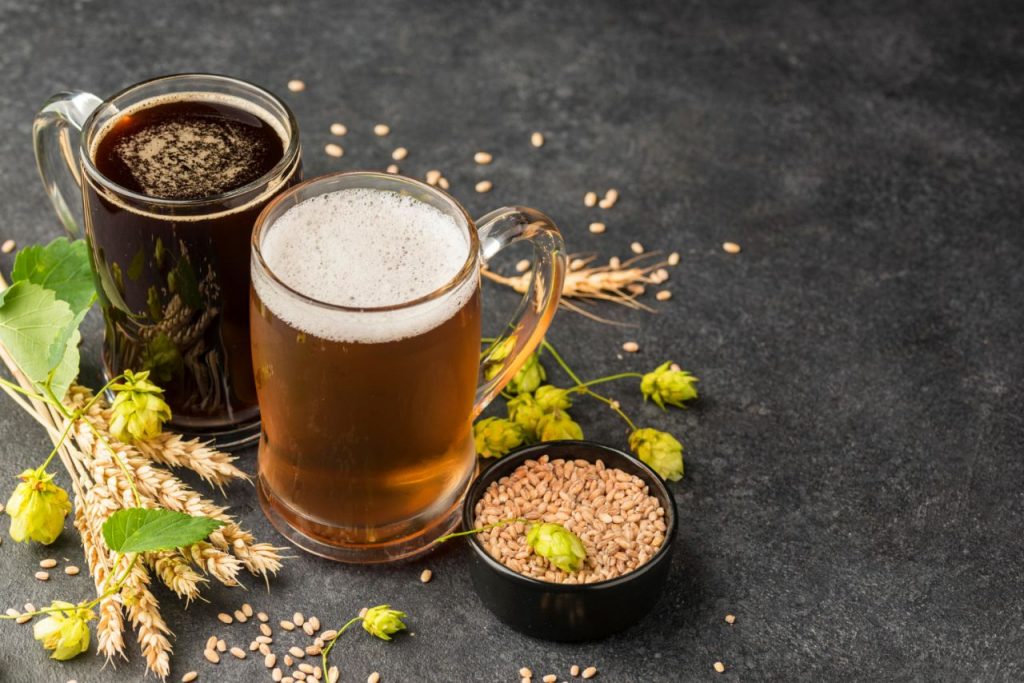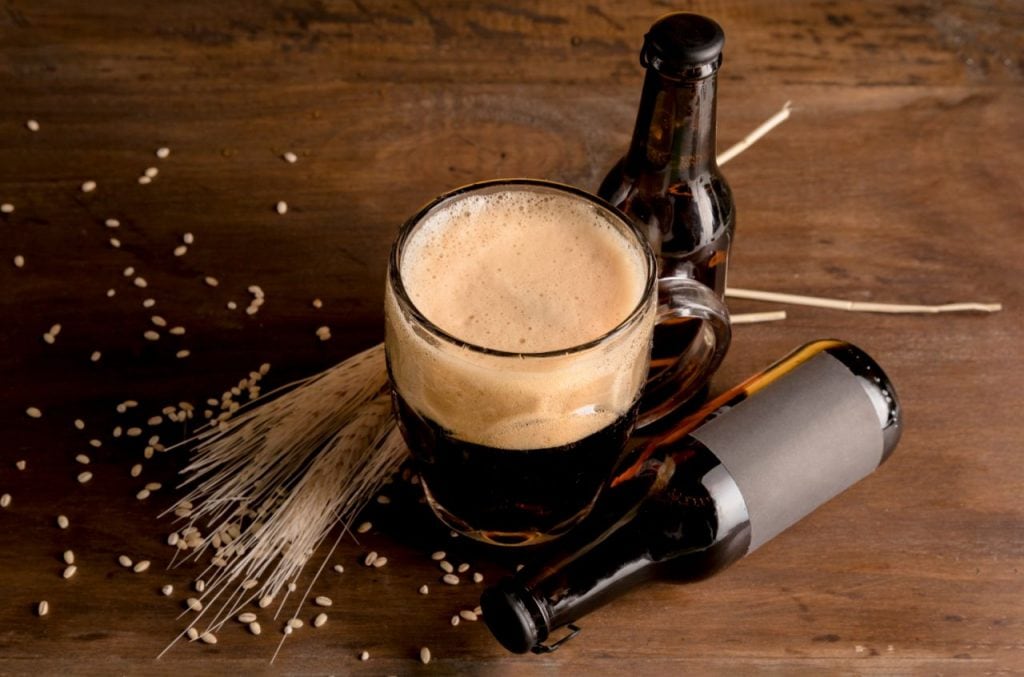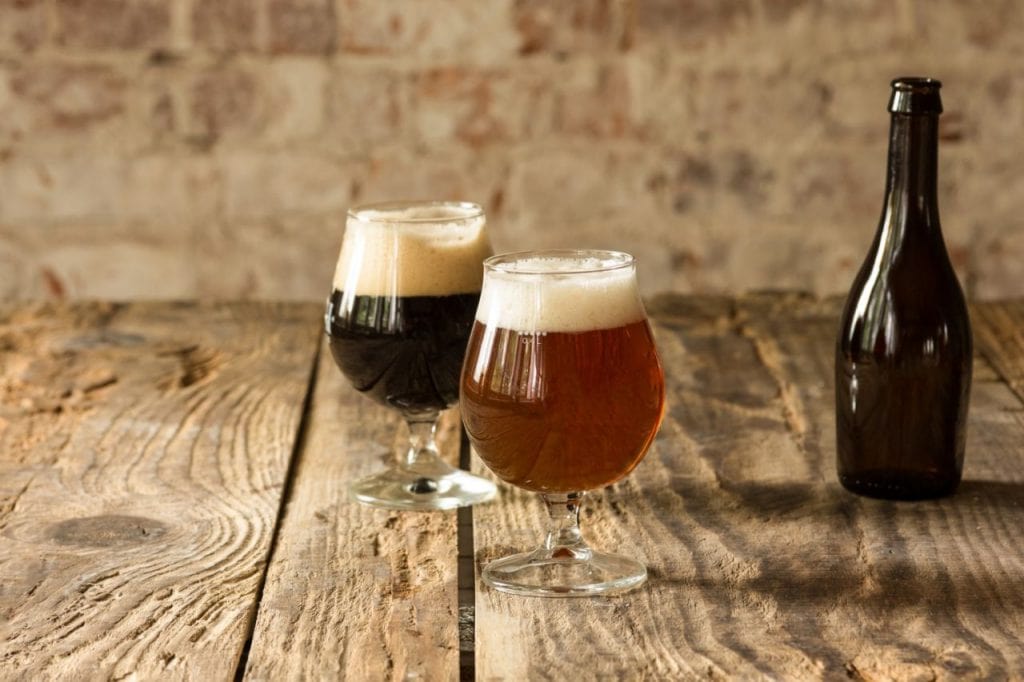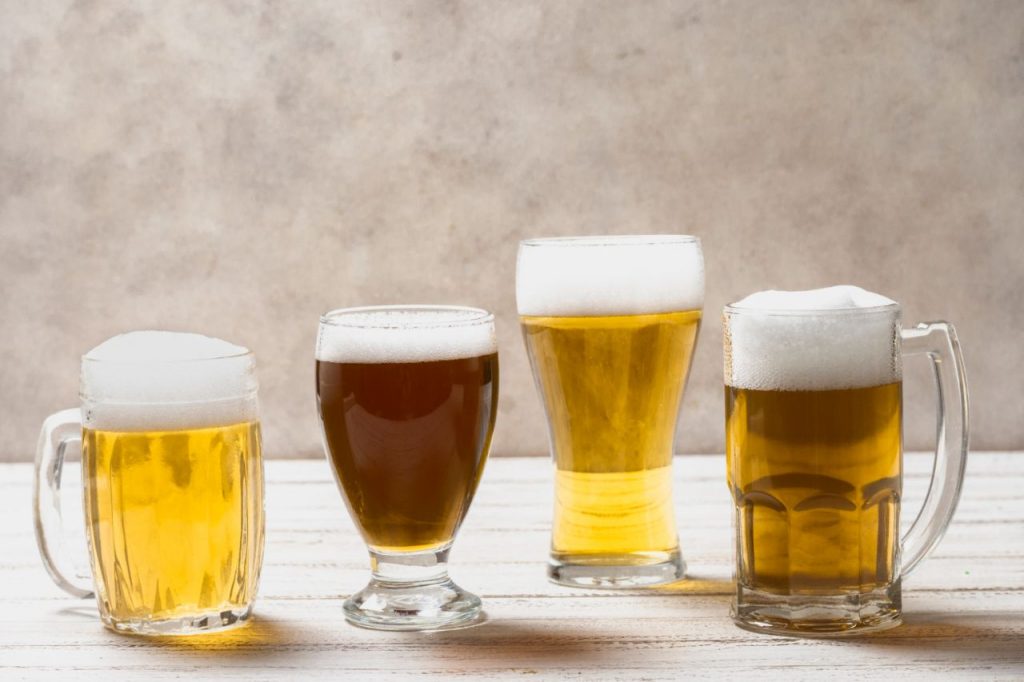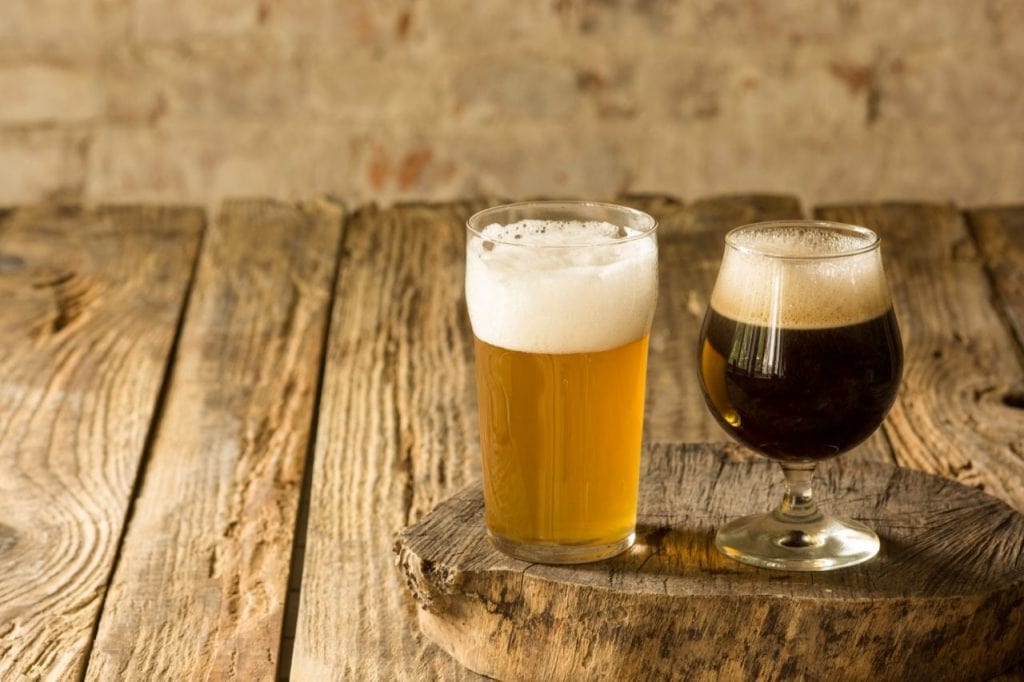There are, however, a few noteworthy exceptions, such as that, in modern times, consumers have their pick among a large number of brewers. As a result, the terms "microbrewery," "craft brewery," and possibly even "nanobrewery" are probably not foreign to you at all.
Are you familiar with the differences that exist between them? Within this article, we shall investigate the various classifications of breweries and discuss the qualities that set each one apart. So continue reading whether you like beer or have a curiosity about knowing more about the process of making beer; either way, you won't be disappointed by what you find out here!
What Is A Brewery?
People creating beer do so in establishments known as breweries. It is often a huge building that contains a great deal of apparatus. Brewers are those who work in a brewery and are given that title. To manufacture beer, malt, hops, yeast, and water are the four primary ingredients. Brewing is the process of making beer, also known as just brewing. There are a wide variety of approaches to brewing beer. There are many that make their beer at home.
People manufacture their beer in their homes by brewing it in small batches for personal consumption, known as "home brewing." However, commercial breweries produce enormous quantities of beer at once, intending to sell it to bars, restaurants, and retailers. As a result, there is a wide variety of beer out there to choose from.
Some people like to drink light beers, while others like dark brews. Craft beers come in a wide variety of styles and varieties as well. Craft breweries produce beer in tiny batches that each has its distinctive characteristics. There are those who prefer to drink beers with a fruity flavour, while others favour bitter, hoppy beers. There is no limit to the variety of options available when it comes to making beer.
One can choose from a wide variety of brewing equipment when it comes to brewing beer. The brew kettle is the most significant piece of equipment in the brewery. The wort and hops are cooked together in the brewing kettle during the brewing process. The malt and water combine to produce a liquid known as wort during brewing. Hops are included in the recipe.
What Are Some Of The Most Common Types Of Breweries Available Today?
- Craft Brewery
- Nano Brewery
- Brewpub
- Farm Brewery
- Contract Brewing Company
In order to properly categorise each variety of brewery, there will be a set of rules and guidelines that are specific to that form of the brewery.
The Craft Brewery
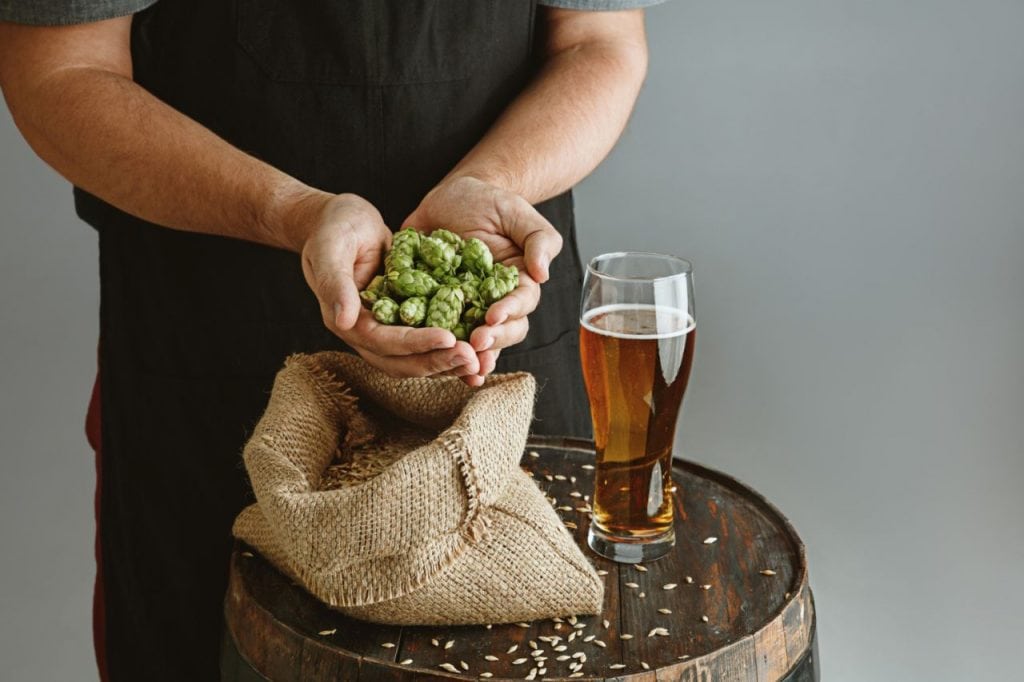
Beer has been brewed for centuries, and the craft beer movement has gained momentum in recent years as people have become more interested in artisanal products. Craft breweries are small, independently-owned operations that focus on quality and creativity, using traditional brewing methods to create unique beers.
Many craft breweries source their ingredients locally, and some even grow their hops and barley. The result is a delicious, high-quality product often very different from the mass-produced beers available in most stores. So whether you're a beer lover looking to try something new or a budding brewer, craft beer is worth checking out.
The following is a list of the most important requirements that need to be met in order for a brewery to be classified as a craft brewery:
- The brewery was profit-oriented, and the only share held by a non-related third party amounted to less than 25 per cent of the total. This share was a minority one.
- The brewery is accountable for producing beer at an amount that is either less or equal to six million gallons in a given year.
During the production phase, further limitations are placed on the various brewing methods permitted to be used. These limitations are intended to ensure the quality of the finished product. These constraints are related to the processes used to make the beer.
It takes a lot more than just brewing your beer to qualify as a craft brewery; your product also needs to comply with a number of stringent standards before it can be considered a craft beer product. Craft breweries can only qualify as craft breweries if they meet certain criteria. Therefore, craft brewers are required to follow a number of specific guidelines in order to maintain their status as craft breweries.
Macro Breweries
In recent years, the beer industry has undergone a major transformation. People are more curious than ever about trying new and unique beer styles as a direct result of the proliferation of craft breweries in recent years. However, one type of brewery has remained largely unchanged: the macro brewery.
Macro breweries are large-scale operations that produce a limited number of mass-produced beers. While they may not be as exciting as their small-batch counterparts, macro breweries still play an important role in the beer industry.
For one thing, they provide a more affordable option for people who want to enjoy a cold beer without spending a lot of money. In addition, macro breweries often distribute their products more widely than small breweries, making it easier for people to find the specific types of beer they're looking for. So whether you're a craft beer enthusiast or just looking for a cheap brew, don't forget about the macro breweries. They may not be as flashy, but they're still an important part of the beer scene.
Microbreweries
Microbreweries are small, independent breweries that produce a limited amount of beer. They often use unusual or experimental ingredients and brewing techniques, which can result in unique flavour profiles. There has been a rise in the number of consumers interested in trying out new and unique beers, which has contributed to the popularity of the rise in a number of microbreweries. Microbreweries are often located in repurposed buildings, such as warehouses or old factories.
This can give them a distinctive atmosphere often lacking in mass-produced beers. In addition, many microbreweries offer tours and tastings, which can be a great way. For people looking to explore the world of craft beer, visiting a local microbrewery is a great place to start.
Nano Brewery
A nano-brewery is a small-scale brewery that produces a limited amount of beer. Unlike large commercial breweries, nano breweries are often independently owned and operated. They typically have a smaller staff and fewer brewing vessels, and they produce beer on a much smaller scale. Nano breweries often focus on producing specialty or experimental brews and may sell their beer directly to consumers.
For many people, nano breweries offer an opportunity to support local businesses and try unique beers they otherwise might not have access to. In addition, nano breweries often provide a more intimate setting for enjoying beer, and they may offer tours or tastings that allow visitors to learn about the brewing process. So whether you're a beer enthusiast or just looking to support your local community, visiting a nano brewery is a great way to enjoy a unique experience.
There is a variety of starting points from which microbreweries, also known as nano breweries, can choose.
- Imagine for a second that breweries were making preparations to expand their current operations to a larger scale. If this is the case, a nano brewery is a terrific alternative for developing a proof of concept that will enable them to test the market without the requirement of making a significant financial investment. This will allow them to produce a smaller amount of beer.
- Suppose you are an amateur brewer interested in turning your hobby into a supplementary source of income. In that case, one option you might want to take into consideration is launching a nano brewery.
- It is likely that in the future, in addition to providing customers with food, restaurants will also start manufacturing their beer so that they may sell it to the same clients.
Starting a nano brewery often requires a less initial investment than larger breweries; these businesses typically generate less revenue. The amount of labour required to produce three barrels of beer is identical to the amount of labour required to produce seven to ten barrels of beer; however, nano breweries cannot buy bulk components, resulting in slim profit margins.
Brewpub
Brewpubs are rapidly becoming one of the most popular destinations for folks searching for a fun night out. But what precisely does it mean to go to a brewpub? A restaurant that also brews its beer on the premises is known as a brewpub.
This gives brewpubs a distinct competitive advantage when it comes to providing customers with a selection of different beer varieties. Brewpubs frequently experiment with other styles of beer, including those that are fruity, sour, or barrel-aged, in addition to producing standard ales and lagers.
Brewpubs also have the ability to be highly creative when it comes to the formulas they employ and the ingredients they utilise because they control the entire brewing process. Be sure to stop by your neighbourhood brewpub if you're looking for something fresh and exciting to try in the world of beer and if you're in the area.
Farm Brewery
A brewery situated on a working farm is referred to as a farm brewery. The word can also refer to a brewery that gets all or some of its ingredients from the farm it is situated on. Farm breweries are a relatively recent trend that has been gaining popularity over the past several years despite their relative youth. There are many motivations for individuals to go to farm breweries, some of which are included here.
For starters, they offer a one-of-a-kind chance to gain insight into the brewing process and sample beer that has been freshly crafted in the area. In addition, farm brewers typically have a laid-back ambience that is welcoming to people of all ages, which makes them an excellent option for a day trip or weekend getaway. Last but not least, many people take pleasure in giving their business to local companies, and a farm brewery gives them the opportunity to do just that.
Contract Brewery
A brewery that outsources the production of its beer to another establishment is known as a contract brewery. Contract brewing is an arrangement that is typical in the modern brewing industry. This arrangement, which can be useful for breweries of all sizes, is becoming increasingly popular. Contract brewing is a method that allows smaller brewers to manufacture larger amounts of beer without having to make the financial investment in their brewing equipment.
Additionally, it can be useful for well-established brewers considering expanding their current business activities. Increasing production may be possible through contract brewing, which eliminates the need to pay the costs associated with developing a new brewing facility. Large breweries frequently have the spare production capacity and are in a position to offer deals to contract brewers. This agreement can benefit both parties, enabling smaller breweries to expand their operations without taking on more debt or risk.
Even though the contents of an agreement typically provide a significant amount of area for wiggle room when it comes to being changed, Some of the options include the following:
- By providing services in the areas of recipe formulation, distribution, and the provision of brewing equipment, a company that offers contract brewing services has the ability to become a complete participant in the brewing process. This is possible because the firm offers these services.
- The other partner may be in charge of the actual production of the beer, while the contract brewing firm will be responsible for all aspects of marketing, branding, and distribution of the product.
- By far, the most common scenario is one in which one of the partners is also in charge of distribution and retail operations. At the same time, the contract brewery has to brew the beer and package it for distribution in either bottles or cans, depending on the preference of the client.
"Contract brewing" refers to an economic connection in which the specifics of an agreement are discussed between two parties. A contract brewing arrangement is essentially the same thing as a commercial partnership. Therefore, it is possible that combining the assets of one partner with those of another will prove to be a profitable strategy that is beneficial to both parties engaged in the transaction.
The Other Forms That Breweries Can Take
The following are some of the other categories of breweries that can be found around the world:
Gypsy brewing
Gypsy brewing is a term used to describe the practice of people making beer without having a brewery. Instead, they contract with other breweries to make their beer. This arrangement can be beneficial for both parties. For the gypsy brewer, it allows them to get their product into the marketplace without the costly investment of opening their brewery.
The host brewery helps keep its equipment busy and provides a new source of revenue. Gypsy brewing has become increasingly popular in recent years, as the cost of starting a brewery and the number of small breweries has increased. This trend has led to some people referring to gypsy brewers as " opportunists." However, most gypsy brewers are passionate about their products and take pride in their work.
Regional brewery
A regional brewery is a beer brewing company that sells its products within a specific region. Many people choose to support regional breweries because they want to help boost the local economy. Additionally, regional breweries typically use high-quality ingredients and send their products through a rigorous quality control process.
This results in a delicious product that people can feel good about drinking. Furthermore, supporting a regional brewery helps to ensure that jobs stay local. The profits often leave the community when people buy from a big, national brewery. However, when people buy from a regional brewery, the money stays within the region, supporting local businesses and workers. For all of these reasons, many people choose to support their local, regional brewery.
Trappist Breweries
Trappist breweries are found in six countries across the globe: Belgium, the Netherlands, Austria, the United States, Italy, and Spain. These breweries are run by monks who follow the Rule of St. Benedict. The monasteries these breweries are located in often dating back centuries, and the monks who live there take a vow of silence.
The Trappist order is known for its simple way of life and self-sufficiency. Many of these monasteries still use traditional methods to brew their beer. For example, some use open fermenters, while others employ coolship fermentation. Despite their different brewing methods, all Trappist breweries share a commitment to quality and sustainability. In addition to beer, Trappist monasteries also produced cheese, yoghurt, bread, and other baked goods. If you're ever in Belgium or the Netherlands, visit one of these unique breweries!
Final Thoughts
Beer has been present, in one form or another, for virtually the entire time that people have been on our planet. Evidence of its existence has been uncovered in ancient civilizations, and during the Middle Ages, monasteries in Europe were producing it on a large scale for widespread use. As a result, beer's function has shifted from a dietary supplement to a beloved beverage enjoyed for enjoyment. Still, the enthusiasm with which it is brewed is unlikely to alter.
Even though our current technology has made it possible to develop more sophisticated procedures, it is astonishing to see how trends are coming closer to what they were hundreds of years ago. For example, in the early part of the 20th century, major businesses controlled the manufacture of beer.
These days, however, small operations, farm breweries, taprooms and brewpubs, and even nano breweries are becoming increasingly popular. They are strikingly similar to the method used to brew beer in the days before mass manufacturing became the norm. As a result, it's possible that the methods that were done in the past aren't always the best option.
Content Summary
- As a result, the terms "microbrewery," "craft brewery," and possibly even "nanobrewery" are probably not foreign to you at all.
- Brewing is the process of making beer, also known as just brewing. There are a wide variety of approaches to brewing beer. People manufacture their beer in their homes by brewing it in small batches for personal consumption, known as "home brewing." However, commercial breweries produce enormous quantities of beer at once, intending to sell it to bars, restaurants, and retailers.
- Craft breweries produce beer in tiny batches that each has its distinctive characteristics.
- There is no limit to the variety of options available when it comes to making beer.
- One can choose from a wide variety of brewing equipment when it comes to brewing beer.
- The wort and hops are cooked together in the brewing kettle during the brewing process.
- The malt and water combine to produce a liquid known as wort during brewing.
- Craft Brewery Nano Brewery Brewpub Farm Brewery Contract Brewing Company To properly categorise each variety of breweries, there will be a set of rules and guidelines specific to that form of the brewery.
- Craft breweries are small, independently-owned operations focusing on quality and creativity, using traditional brewing methods to create unique beers. Many craft breweries source their ingredients locally, and some even grow their hops and barley.
- The result is a delicious, high-quality product often very different from the mass-produced beers available in most stores. So whether you`re a beer lover looking to try something new or a budding brewer, craft beer is worth checking out.
- The following is a list of the most important requirements that need to be met for a brewery to be classified as a craft brewery: The brewery was profit-oriented, and the only share held by a non-related third party amounted to less than 25 per cent of the total.
- Further limitations are placed on the various brewing methods permitted during the production phase.
- It takes a lot more than just brewing your beer to qualify as a craft brewery; your product also needs to comply with a number of stringent standards before it can be considered a craft beer product.
- Macro Breweries In recent years, the beer industry has undergone a major transformation.
- People are more curious than ever about trying new and unique beer styles as a direct result of the proliferation of craft breweries in recent years.
- Macro breweries are large-scale operations that produce a limited number of mass-produced beers. While they may not be as exciting as their small-batch counterparts, macro breweries still play an important role in the beer industry.
- Microbreweries are small, independent breweries that produce a limited amount of beer.
- They often use unusual or experimental ingredients and brewing techniques, which can result in unique flavour profiles.
FAQs About Brewery

How To Start Home Brewing?
People who take pleasure in creating their beer often take up homebrewing as a hobby because of its popularity. Brewing is an enjoyable and fulfilling hobby for many individuals since it allows them to explore new recipes and experiment with different components. In addition, creating your beer at home can be an excellent method to cut costs on store-bought beer.
If you are thinking of making beer at home, there are a few things you need to be aware of before you get started. First, patience and attention to detail are prerequisites for successful homebrewing. It takes some time to master the brewing process because it combines arts and sciences elements.
In addition, brewing equipment can be pricey, which is why it is essential to perform research before purchasing anything. Finally, keep in mind that brewing beer is supposed to be fun, as this is the most important step in the process. Therefore, please don't let yourself become very anxious about the process; instead, try to unwind and take it all in stride. Who knows, you could end up finding your new favourite hobby in this process.
How Long Does It Take To Make A Batch Of Beer?
Starting from the beginning to the end of the brewing process typically takes around two weeks. The time it takes to bottle and condition the beer, which can add another week or two to the process, is not included in this estimation. Therefore, if you want to brew a batch of beer for a particular event, you need to make sure that you leave yourself plenty of time to complete the operation.
The period of time essential will change according to the style of beer that you intend to produce. Some beers need to be brewed for a longer period of time than others, while others can be consumed after only a few short days. However, as a general rule, most people anticipate that their beer batch will be ready in around four to six weeks.
Do Homemade Beers Need Filters?
Many individuals are under the impression that filtering beer will improve the beverage's flavour. They think that by doing this, all of the contaminants in the beer will be removed, and the beer will end up tasting more like what they were anticipating it to taste like. Unfortunately, people who subscribe to this school of thought have a fundamental flaw: they fail to consider the characteristics that define the beer's flavour.
It is traditional for beer to have a trace of fruitiness, a hint of hoppiness, and a grainy quality while maintaining its overall dryness. The process of filtering beer removes some of these flavours from the finished product. Because you are eliminating some of the yeast from the beer, the flavour may also be altered as a result of this. If you want to ensure you get the most out of your beer, you shouldn't filter it. This will ensure that you are getting the most out of your beer. Allow each flavour to shine while you savour the beer for what it is while appreciating it for what it is.
How Often Should You Brew?
The amount of coffee a person consumes, how they prepare their coffee and the kind of coffee maker they have all have a role in determining how frequently they brew their coffee. For instance, a person who drinks one cup of coffee per day may only require brewing the coffee once a week, whereas a person who drinks three cups of coffee daily may require brewing the coffee every other day.
Additionally, those who want coffee with a stronger flavour may have to brew it more frequently than those who prefer coffee with a less flavour. Last but not least, those who make coffee with drip coffee makers may need to brew their coffee more frequently than those who make coffee with percolators or French presses. Experimenting with different intervals to see what yields the greatest results is ultimately the most reliable method for determining how frequently you should brew.
What Is A Kind Of Alcohol Brewed?
Most grain-based products utilised in manufacturing alcoholic beverages, including barley, wheat, and rye, are known as cereal grains. However, the beverage can be made from a wide variety of components. Rice, maize, and even potatoes are other grains and vegetables that could be used in brewing.
The fermentation method that is put to use is directly related to the final flavour profile of the alcohol that is made. For instance, the fermentation of grain into beer is often done with yeast, but the fermentation of grapes into wine is typically done with yeast.
Distilling fermented grain mash is typical for producing spirits such as vodka and whisky. However, as you can see, numerous methods can be used to brew alcohol, and the type of beverage produced will change depending on the components utilised and the brewing process.
People who take pleasure in creating their beer often take up homebrewing as a hobby because of its popularity. Brewing is an enjoyable and fulfilling hobby for many individuals since it allows them to explore new recipes and experiment with different components. In addition, creating your beer at home can be an excellent method to cut costs on store-bought beer.
If you are thinking of making beer at home, there are a few things you need to be aware of before you get started. First, patience and attention to detail are prerequisites for successful homebrewing. It takes some time to master the brewing process because it combines arts and sciences elements.
In addition, brewing equipment can be pricey, which is why it is essential to perform research before purchasing anything. Finally, keep in mind that brewing beer is supposed to be fun, as this is the most important step in the process. Therefore, please don't let yourself become very anxious about the process; instead, try to unwind and take it all in stride. Who knows, you could end up finding your new favourite hobby in this process.
Starting from the beginning to the end of the brewing process typically takes around two weeks. The time it takes to bottle and condition the beer, which can add another week or two to the process, is not included in this estimation. Therefore, if you want to brew a batch of beer for a particular event, you need to make sure that you leave yourself plenty of time to complete the operation.
The period of time essential will change according to the style of beer that you intend to produce. Some beers need to be brewed for a longer period of time than others, while others can be consumed after only a few short days. However, as a general rule, most people anticipate that their beer batch will be ready in around four to six weeks.
Many individuals are under the impression that filtering beer will improve the beverage's flavour. They think that by doing this, all of the contaminants in the beer will be removed, and the beer will end up tasting more like what they were anticipating it to taste like. Unfortunately, people who subscribe to this school of thought have a fundamental flaw: they fail to consider the characteristics that define the beer's flavour.
It is traditional for beer to have a trace of fruitiness, a hint of hoppiness, and a grainy quality while maintaining its overall dryness. The process of filtering beer removes some of these flavours from the finished product. Because you are eliminating some of the yeast from the beer, the flavour may also be altered as a result of this. If you want to ensure you get the most out of your beer, you shouldn't filter it. This will ensure that you are getting the most out of your beer. Allow each flavour to shine while you savour the beer for what it is while appreciating it for what it is.


